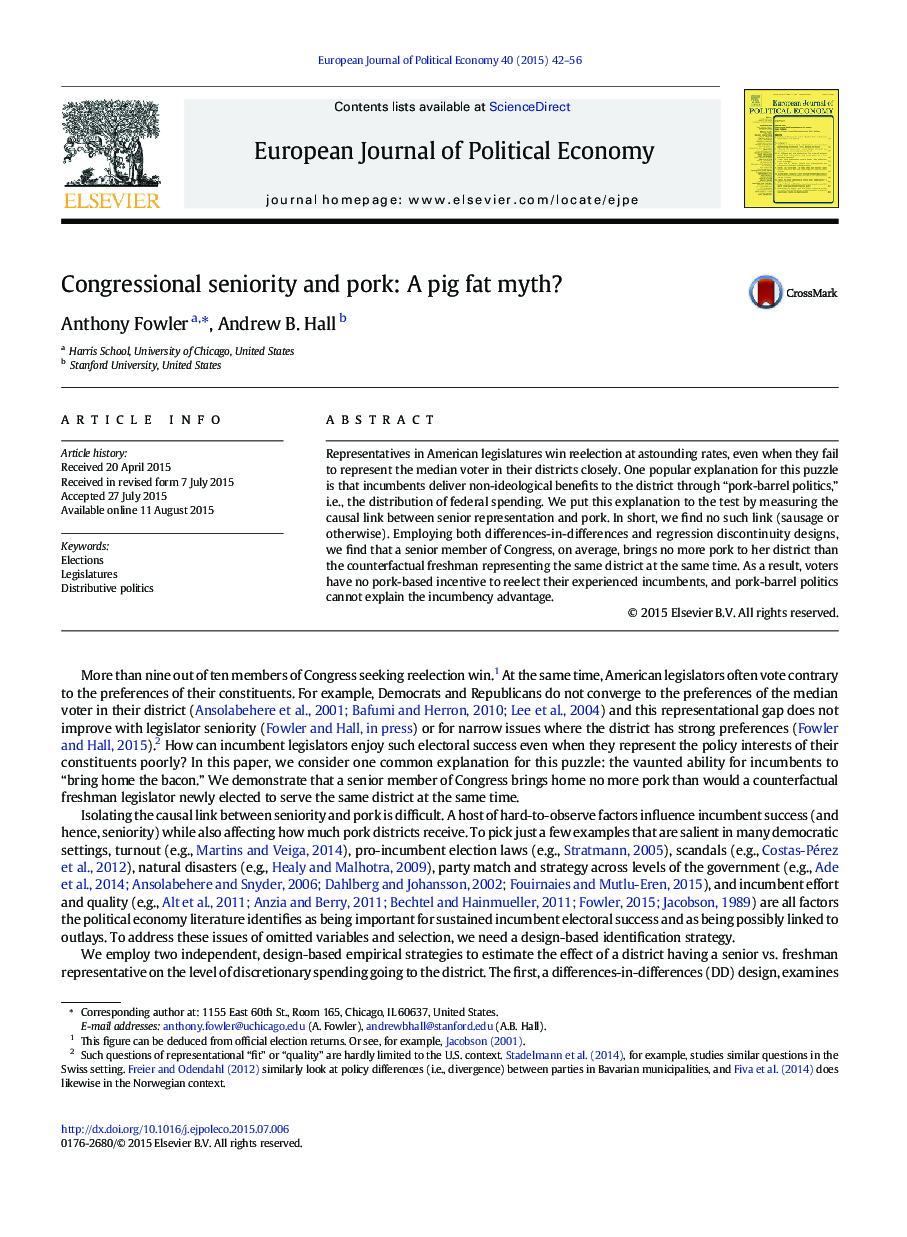| Article ID | Journal | Published Year | Pages | File Type |
|---|---|---|---|---|
| 5067908 | European Journal of Political Economy | 2015 | 15 Pages |
â¢Voters receive no more pork from senior incumbents than from rookies.â¢Voters receive no more pork from a member of the majority party.â¢Our null results may be explained by decreased effort of senior legislators.â¢Pork-barrel politics cannot explain the incumbency advantage.
Representatives in American legislatures win reelection at astounding rates, even when they fail to represent the median voter in their districts closely. One popular explanation for this puzzle is that incumbents deliver non-ideological benefits to the district through “pork-barrel politics,” i.e., the distribution of federal spending. We put this explanation to the test by measuring the causal link between senior representation and pork. In short, we find no such link (sausage or otherwise). Employing both differences-in-differences and regression discontinuity designs, we find that a senior member of Congress, on average, brings no more pork to her district than the counterfactual freshman representing the same district at the same time. As a result, voters have no pork-based incentive to reelect their experienced incumbents, and pork-barrel politics cannot explain the incumbency advantage.
